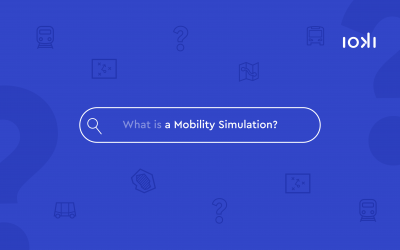Political commitment to the mobility transition
The Ministry of Infrastructure and Regional Planning has been working on a mobility law for the state of Brandenburg. The proposal for climate-friendly and socially just mobility in Brandenburg has been in place since the beginning of July 2023. The aim is to connect Brandenburg in a reliable, affordable and climate-friendly way. The Mobility Act aims to become a nationwide driver of innovation and pacemaker for the mobility turn and climate protection. Climate protection and transport are to be linked and environmentally friendly means of transport are to be prioritised over other forms of mobility.
The aim is to achieve climate neutrality by 2045 and increase the share of public transport, cycling and walking in total transport to 60 per cent. The draft envisages a nationwide rail and bus network with the involvement of the local authorities. In addition, regional rail passenger transport is to be re-planned by maintaining existing railway lines and their infrastructure, reactivating them or even putting new connections into operation. The aim is to improve the frequency of local bus and rail transport in line with uniform standards and to amend the Brandenburg Road Act with a regulation on station-based car sharing and regulations for high-speed cycle paths.
The new mobility strategy, in which the state government has set ambitious goals, builds on this by expanding the rail network and better linking rail and bus by 2030. PlusBus (buslines synchronised with rail passenger transport) and demand responsive transport services will strengthen the offer.
Smart Cities in Brandenburg
The Ministry of Infrastructure and Regional Planning is particularly active in the field of urban development. “Meine Stadt der Zukunft” (in English: My City of the Future) is the name of the state initiative with which the ministry supports Brandenburg’s municipalities in important topics of future significance for sustainable urban development. The focus is on the development and testing of innovative ideas and approaches in the areas of digitisation, public welfare and climate change.
On the one hand, the initiative aims to involve all cities in Brandenburg in the transfer of knowledge from pilot projects, science and municipal practice. On the other hand, selected municipal pilot projects are to receive funding to find solutions to the challenges of the future. These could be, for example, the revitalisation of city centres, the thermal energy or local energy transition, sustainable neighbourhoods or local mobility.
Autonomous mobility in Brandenburg
In addition to dreams of the future, Brandenburg has many existing technological flagship mobility projects to offer. Europe’s largest test centre for advanced driver assistance functions is located on the edge of the Lausitzring. Automated driving functions can be simulated on around 80,000 square metres in an environment ranging from a small town to a global metropolis. The facility includes traffic lanes, large areas, intersections and, among other things, tram tracks. This allows autonomous driving to be tested in almost any complex situation.
Another autonomous research project was underway in Brandenburg between 2019 and 2020: the joint project AutoNV_OPR investigated the possibilities of implementing automated bus transport in rural areas. In the district of Ostprignitz-Ruppin, the electrically powered self-driving minibus operated as a public transport feeder system. The project was funded by the Federal Ministry of Transport and Digital Infrastructure with 1.58 million euros.
Self-driving vehicles will soon also be travelling on public roads in the Brandenburg district of Potsdam-Mittelmark. In the BMDV-funded LEAF project (in English: Rural development with autonomous vehicles), the districts of Potsdam-Mittelmark and Western Pomerania-Rugia are working closely with regional transport companies to test the potential of autonomous shuttles in sparsely populated and suburban regions over the next three years. The project aims to introduce an autonomous on-demand ridepooling system that will create a flexible and sustainable mobility alternative to complement existing public transport services.
The future of cycling
Cycling also plays a major role in the task of achieving the mobility turn in this nature-oriented state. The cycling strategy adopted by the Brandenburg cabinet aims to increase the proportion of all journeys made by bike in Brandenburg to 20 per cent. The Brandenburg Cycle Network aims to link railway stations, stops, school locations and tourist destinations in the state with cycle paths by 2045. Bicycle parking facilities at railway stations and upgraded bicycle transport facilities are also intended to improve links to local public transport. The plan is in place – now all that is missing is concrete implementation.
Networked mobility, fast cycle routes and sustainable technologies provide a glimpse into the future of mobility in Brandenburg.



